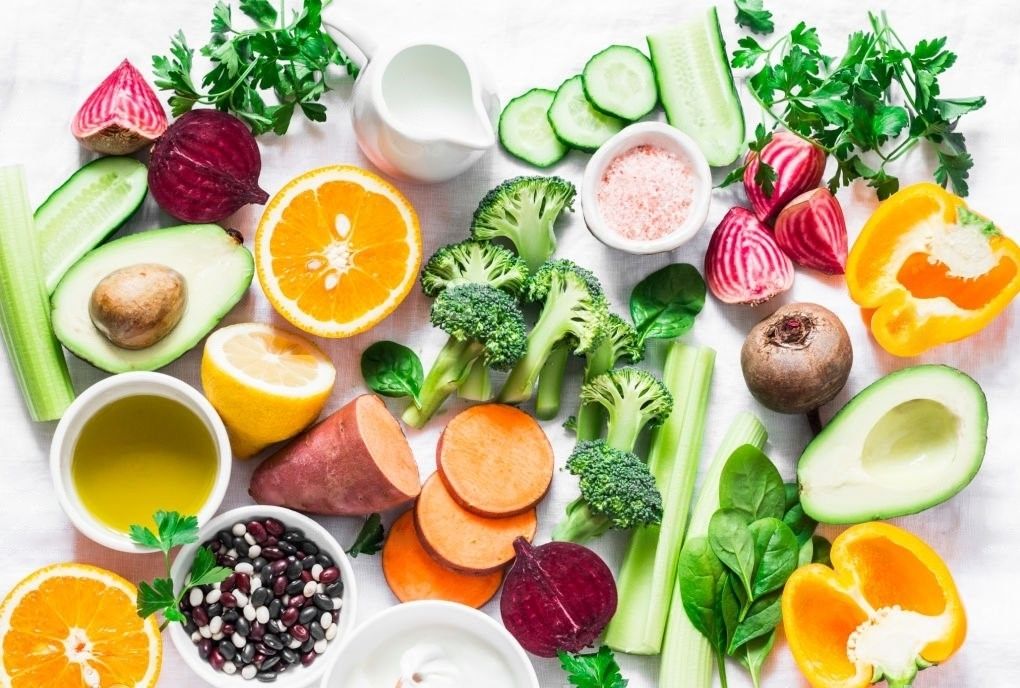The Power of Antioxidants: How They Promote Healthy Aging in Women
Women can promote healthy aging, retain youthful skin, and lower the likelihood of chronic diseases by utilizing the potential of antioxidants.

Aging is a natural process that affects all individuals, and women, in particular, may face unique challenges as they age. However, incorporating antioxidants into our diet and lifestyle can play a significant role in promoting healthy aging and mitigating the effects of oxidative stress. In this blog, we will explore the science-backed benefits of antioxidants and their impact on women's health. By understanding how antioxidants work and the various sources available, we can harness their power to support healthy aging and overall well-being.
Unleashing the Power of Antioxidants: Promoting Healthy Aging and Disease Prevention in Women
1.Understanding Oxidative Stress:
- Oxidative stress occurs when there is an imbalance between the production of harmful molecules called free radicals and the body's ability to neutralize them with antioxidants.
- Free radicals are highly reactive molecules that can damage cells, proteins, and DNA, leading to accelerated aging and the development of chronic diseases.
- Antioxidants help counteract the effects of free radicals by neutralizing them and reducing oxidative stress.
2. Anti-Aging Benefits:
- Antioxidants play a crucial role in slowing down the aging process by protecting cells from damage caused by free radicals.
- They help maintain the integrity of cellular structures, including collagen and elastin, which are essential for skin elasticity and firmness.
- Studies have shown that a diet rich in antioxidants can help reduce the appearance of wrinkles, improve skin texture, and promote a youthful appearance.
3. Protection Against Chronic Diseases:
- Oxidative stress is closely linked to the development of chronic diseases, including cardiovascular disease, cancer, and neurodegenerative disorders.
- Antioxidants help reduce inflammation, protect against DNA damage, and enhance the body's natural defense mechanisms against disease.
- Regular intake of antioxidants through diet and supplementation has been associated with a reduced risk of chronic diseases in women.
4. Lifestyle Factors:
- In addition to diet, lifestyle factors such as regular exercise, stress management, and adequate sleep contribute to the overall antioxidant status in the body.
- Exercise stimulates the production of endogenous antioxidants, while managing stress helps reduce the production of free radicals.
- Quality sleep allows the body to repair and regenerate cells, reducing oxidative stress.
What are the Sources of Antioxidants ?
- Antioxidants are found in a variety of fruits, vegetables, whole grains, nuts, seeds, and herbs.
- Examples of antioxidant-rich foods include berries, dark leafy greens, colorful vegetables, citrus fruits, nuts (such as almonds and walnuts), and spices like turmeric and cinnamon.
- It is important to consume a diverse range of antioxidant-rich foods to ensure a wide spectrum of beneficial compounds.
SUMMARY
Incorporating antioxidants into our diet and lifestyle can play a significant role in promoting healthy aging and mitigating the effects of oxidative stress. Antioxidants protect cells from damage caused by free radicals, slow down the aging process, and offer protection against chronic diseases. They can be obtained from a variety of plant-based sources, including fruits, vegetables, nuts, and spices. Lifestyle factors such as regular exercise, stress management, and quality sleep also contribute to overall antioxidant status. By harnessing the power of antioxidants, women can support healthy aging, maintain vibrant skin, and reduce the risk of chronic diseases.
Jayti Shah is a Clinical Nutritionist with a master's degree in Clinical Nutrition and Dietetics. She is a member of the Indian Dietetic Association (IDA). Over the last 9 years, she has helped 400 clients in their clinical and weight loss journeys. She works with SocialBoat as a nutrition consultant.
At SocialBoat, we offer custom diet plans and guided workouts to help you achieve your goals in a 360-degree approach. Our gamified experience ensures that you don’t find workouts boring and we reward you for being consistent with your efforts.

REFERENCES
- Poli G, Schaur RJ, Siems WG, Leonarduzzi G. 5.0 Free radicals in the labile iron pool of cardiovascular biology. Free Radical Biology and Medicine. 2013;65:379-386. doi: 10.1016/j.freeradbiomed.2013.05.037
- Pullar JM, Carr AC, Vissers MCM. The roles of vitamin C in skin health. Nutrients. 2017;9(8):866. doi: 10.3390/nu9080866
- Joseph JA, Shukitt-Hale B, Willis LM. Grape juice, berries, and walnuts affect brain aging and behavior. Journal of Nutrition. 2009;139(9):1813S-1817S. doi: 10.3945/jn.109.106126
- Carr AC, Maggini S. Vitamin C and immune function. Nutrients. 2017;9(11):1211. doi: 10.3390/nu9111211
- Grosso G, Bei R, Mistretta A, et al. Effects of vitamin C on health: A review of evidence. Frontiers in Bioscience. 2013;18:1017-1029. doi: 10.2741/4160
- Halliwell B. Reactive oxygen species and the central nervous system. Journal of Neurochemistry. 2006;97(6):1634-1655. doi: 10.1111/j.1471-4159.2006.03913.x
- Ames BN, Shigenaga MK, Hagen TM. Oxidants, antioxidants, and the degenerative diseases of aging. Proceedings of the National Academy of Sciences. 1993;90(17):7915-7922. doi: 10.1073/pnas.90.17.7915
- Pham-Huy LA, He H, Pham-Huy C. Free radicals, antioxidants in disease and health. International Journal of Biomedical Science. 2008;4(2):89-96.
- Pérez-Jiménez J, Neveu V, Vos F, Scalbert A. Identification of the 100 richest dietary sources of polyphenols: An application of the Phenol-Explorer database. European Journal of Clinical Nutrition. 2010;64(S3):S112-S120. doi: 10.1038/ejcn.2010.221
- Wang X, Ouyang Y, Liu J, et al. Fruit and vegetable consumption and mortality from all causes, cardiovascular disease, and cancer: Systematic review and dose-response meta-analysis of prospective cohort studies. BMJ. 2014;349:g4490. doi: 10.1136/bmj.g4490
